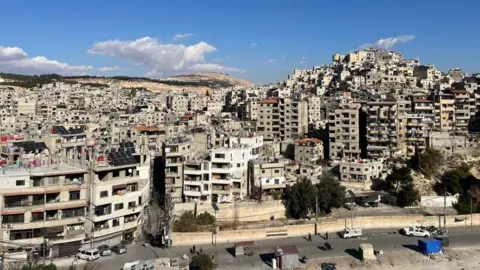As Syria enters a new chapter following the fall of the Assad regime in early December 2024, rights investigators have called for immediate action to protect critical evidence of serious violations committed over the past decade. The Independent International Commission of Inquiry (CoI) on Syria, in a landmark visit, has stressed the importance of preserving mass grave sites and safeguarding documentation crucial for justice and reconciliation.
Evidence at Risk
For the first time since its establishment in 2011, the CoI gained access to Syria, visiting former prisons and detention centers, including the infamous Sednaya and Military Intelligence Branch 235 facilities. The team was met with the grim reality of destroyed, stolen, or damaged evidence that could have aided families in tracing disappeared loved ones.
The Commission underscored the urgent need for protecting mass grave sites and securing remaining documents, warning against premature actions by well-meaning individuals or organizations that could compromise forensic investigations.
Key Recommendations
To address these challenges, the Commission has made several urgent recommendations, including:
- Establishing a specialized unit to coordinate the protection and preservation of mass grave sites and evidence until expert forensic assessments can be conducted.
- Discouraging interference with potential evidence sites and ensuring the return of removed documents.
- Collaborating with national and international rights organizations to secure evidence and provide support to families of missing persons.
“This critical juncture in Syria’s history demands utmost care and solidarity with the Syrian people,” the CoI stated, reiterating its commitment to supporting Syria’s recovery.
Justice and Human Rights in Focus
Over 30 independent human rights experts, including UN Special Rapporteurs, have called for international cooperation to ensure Syria’s transition prioritizes democratic principles and human rights. Key principles include:
- Justice for all crimes committed, through a credible judicial system that focuses on accountability, reparations, and reconciliation rather than revenge.
- Inclusion of marginalized groups, such as women, children, minorities, and displaced persons, in the political and reconstruction processes.
- Civil society involvement to ensure transparency and credibility in Syria’s transition.
International Cooperation and Non-Interference
The rights experts emphasized that Syria’s rebuilding efforts must remain Syrian-led and free from foreign aggression. They specifically highlighted challenges posed by ongoing military interventions, including:
- Illegal attacks and occupations by Israel, such as its actions in the Golan Heights and incursions into northeast and central Syria.
- Proxy wars that have turned Syria into a battleground for foreign powers, further complicating its recovery.
The experts called for the immediate withdrawal of all foreign military forces and an end to territorial incursions to pave the way for effective rehabilitation.
A Unified Path Forward
As Syria seeks to rebuild after decades of conflict and authoritarian rule, justice, reconciliation, and respect for sovereignty will be essential. The involvement of civil society, human rights defenders, and inclusive political processes will play a critical role in ensuring a credible and sustainable transition.
Stay updated on developments in Syria’s reconstruction and justice efforts on our platform, where we explore global solutions to foster peace and uphold human rights in conflict-affected regions.
check the UNnews




